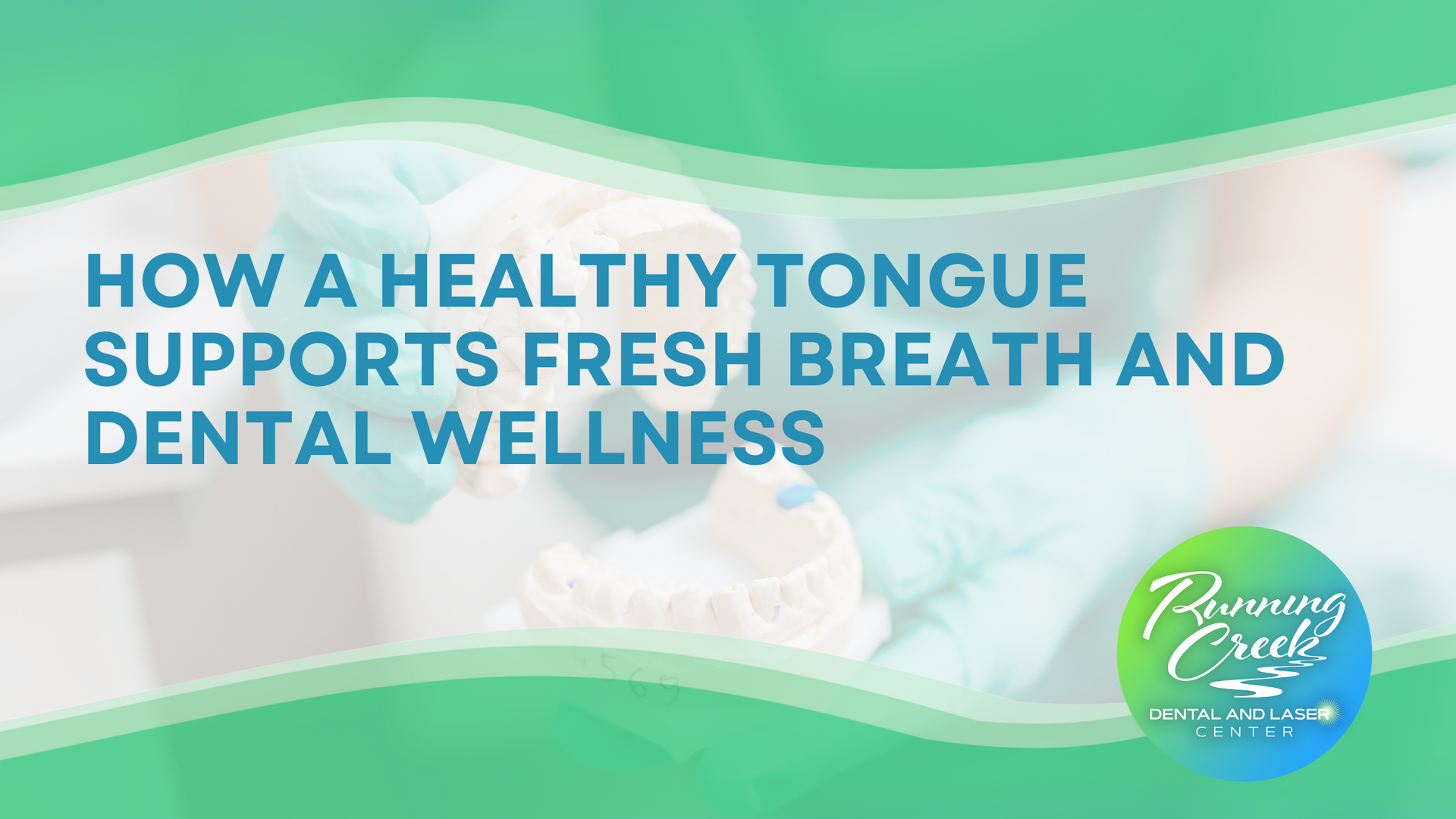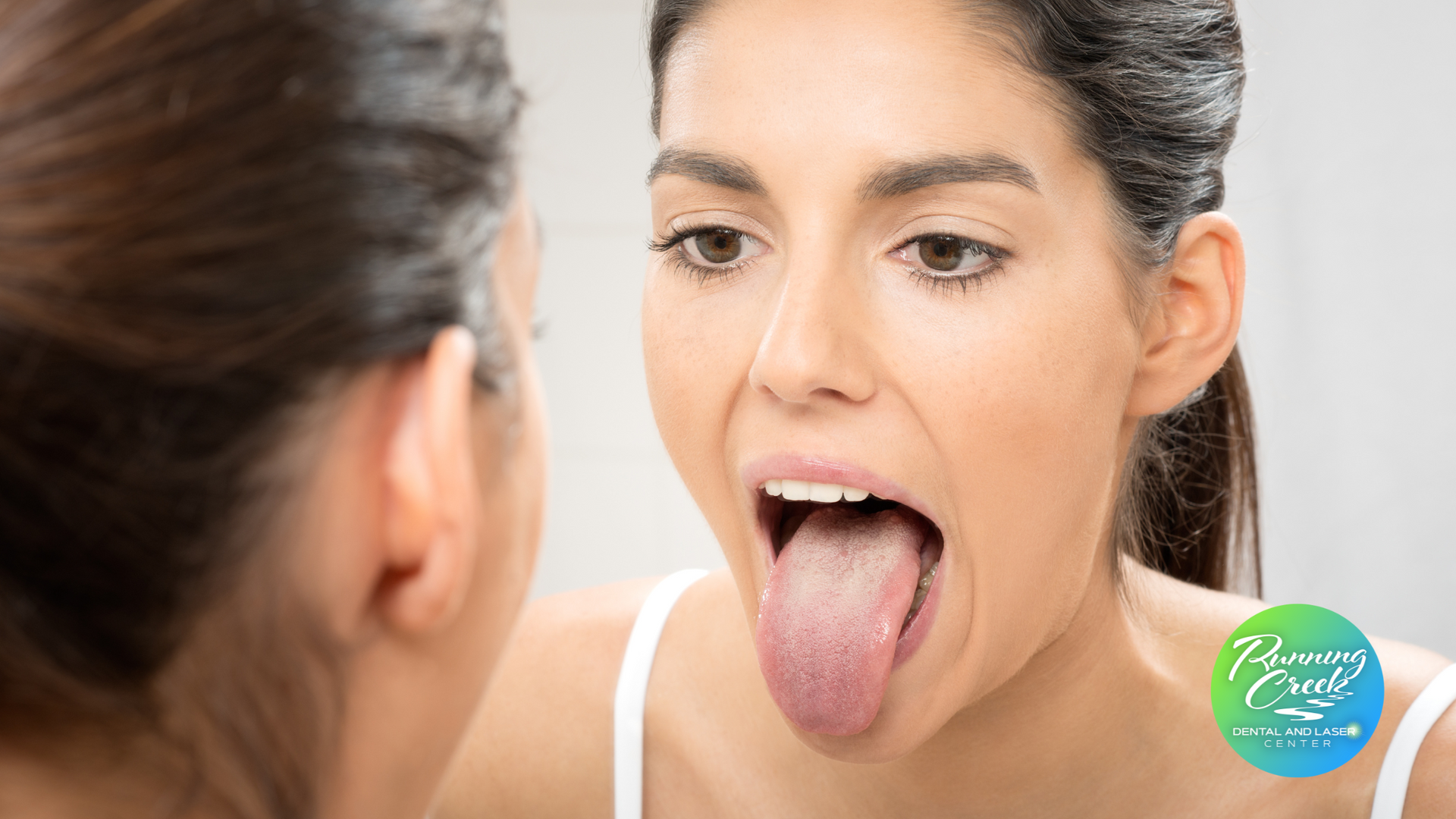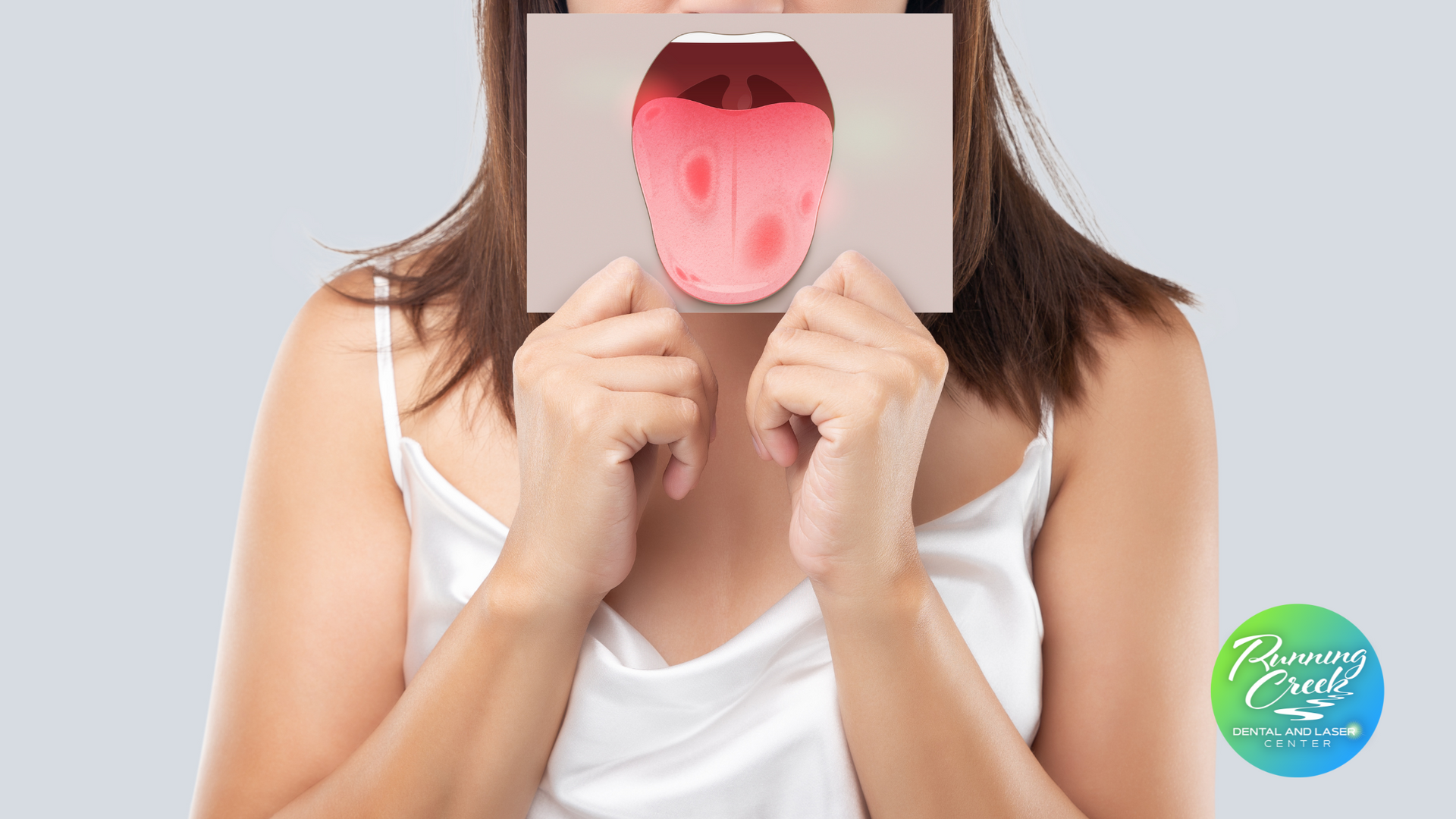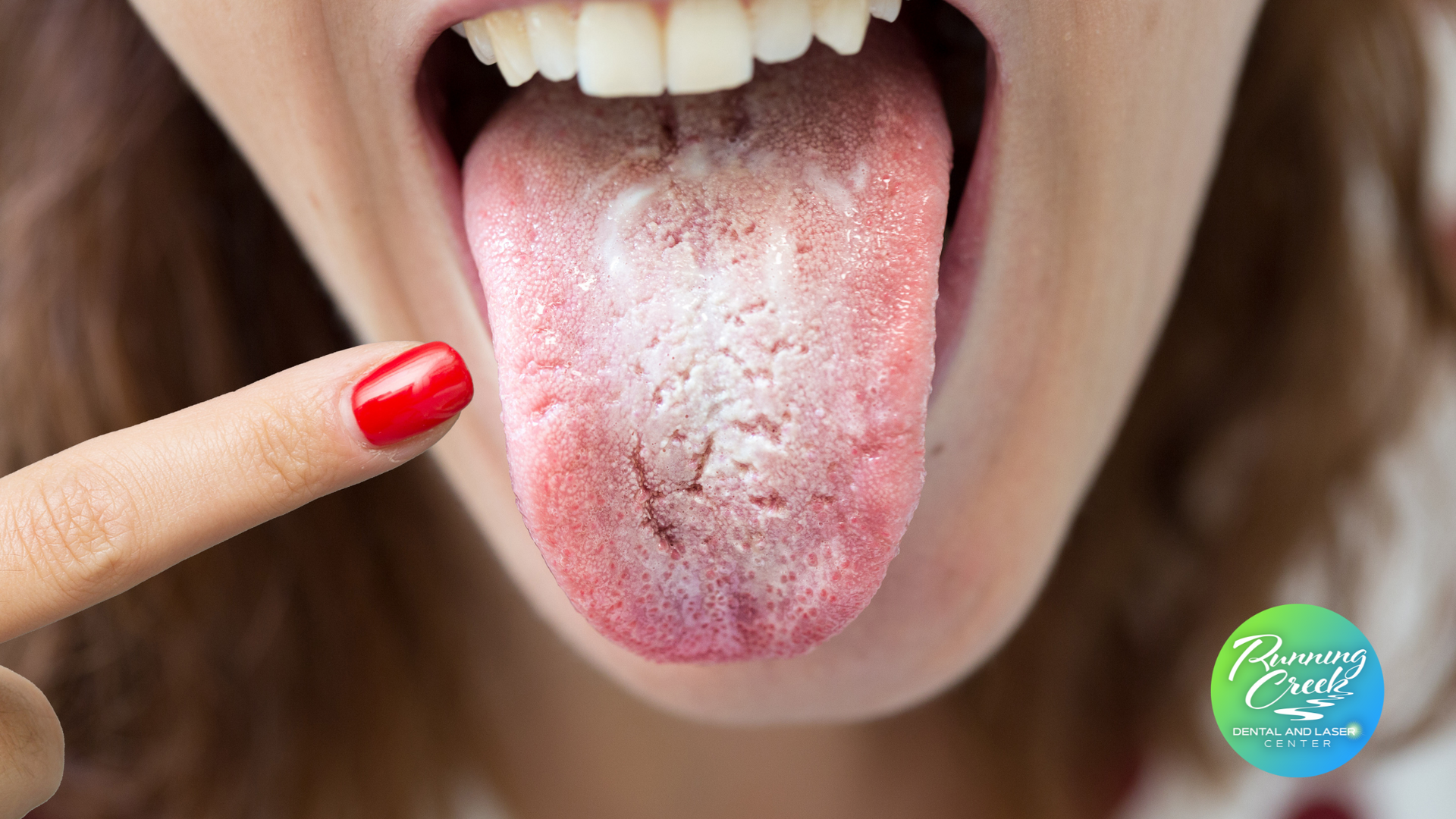How a Healthy Tongue Supports Fresh Breath and Dental Wellness

Source: Dr. Marketing
When it comes to oral hygiene, we tend to focus on our teeth and gums, often overlooking the importance of our tongue. But the tongue plays a vital role in our oral health, from maintaining hygiene and preventing bad breath to supporting overall wellness. In this post, we’ll explore why caring for your tongue is essential, how it impacts dental health, and tips to keep it clean and healthy.
The Structure and Function of Your Tongue

The tongue is a complex and powerful muscle covered in tiny bumps called papillae, which house taste buds that let us enjoy flavors. However, the tongue’s role extends far beyond tasting food—it’s essential for overall health. It aids digestion by moving food around the mouth and mixing it with saliva, making swallowing and digestion easier. The tongue also plays a crucial role in speech, allowing us to form sounds for clear communication. Additionally, it functions as a natural cleaner, sweeping over teeth and gums to remove food particles and bacteria that could otherwise lead to plaque buildup and decay. With these vital functions, keeping the tongue healthy and clean is integral to maintaining a balanced, healthy mouth.
How the Tongue Impacts Oral Hygiene

Keeping the tongue clean is just as important as brushing and flossing. An unclean tongue can become a breeding ground for bacteria and other microbes, which can lead to issues like bad breath and oral infections. Here are some of the ways the tongue affects oral hygiene:
Preventing Bad Breath (Halitosis)
One of the primary causes of bad breath is the buildup of bacteria on the tongue. These bacteria produce volatile sulfur compounds (VSCs), which have a foul smell and can lead to persistent halitosis. The back of the tongue is especially prone to bacterial buildup, as it’s harder to clean and more likely to trap food particles. Regular tongue cleaning can significantly reduce these odor-causing bacteria, keeping breath fresh.
Reducing Bacteria and Plaque Buildup
Bacteria on the tongue don’t just stay there—they can easily spread to other areas of the mouth. As the tongue moves over teeth and gums, it transfers bacteria, which can lead to plaque buildup and, eventually, cavities and gum disease. By keeping the tongue clean, you reduce the number of bacteria in your mouth, lowering the risk of dental issues and keeping your teeth and gums healthier.
Enhancing Taste Sensation
A coated tongue can dull your sense of taste. The buildup of debris, dead cells, and bacteria can cover taste buds, making it harder to enjoy flavors fully. Regularly cleaning the tongue can help remove this coating, allowing taste buds to function properly, enhancing your sense of taste, and contributing to a more enjoyable eating experience.
Supporting Gum Health
Bacteria from an unclean tongue can migrate to the gums, contributing to gingivitis and periodontal disease. Since the tongue is constantly in contact with gums, keeping it clean helps reduce the risk of transferring bacteria to gum tissue. This practice is particularly beneficial for individuals with a history of gum disease or those looking to maintain strong, healthy gums.
Signs of an Unhealthy Tongue

An unhealthy tongue can indicate potential oral health issues and may sometimes reflect overall health concerns. Here are some signs to watch for:
- White Coating: A white, thick coating can indicate an excess buildup of bacteria, food particles, and dead cells on the tongue’s surface.
- Red or Swollen Tongue: This could be a sign of an infection, allergic reaction, or even a deficiency in essential nutrients like B vitamins and iron.
- Soreness or Bumps: While occasional soreness is normal, persistent pain, sores, or unusual bumps may indicate infections or other health concerns.
- Changes in Color: A healthy tongue is pink. If the tongue appears unusually pale, yellow, or dark, it may indicate underlying health issues that should be evaluated by a healthcare professional or by our dentist, Dr. Larry O'Neill at Running Creek Dental and Laser Center.
Regularly inspecting your tongue for these signs can help you detect early symptoms of potential oral or overall health issues.
How to Keep Your Tongue Clean and Healthy

Now that we understand the importance of the tongue in oral health, here are some effective ways to keep it clean and maintain optimal health:
Brush Your Tongue Daily
Using your toothbrush to brush your tongue should be part of your daily oral hygiene routine. Gently brush from the back of the tongue to the front, ensuring you cover the entire surface. This helps remove bacteria, food particles, and any coating that may have accumulated overnight. Many toothbrushes come with a built-in tongue scraper on the back, which can be an effective tool.
Use a Tongue Scraper
A tongue scraper is a simple tool designed specifically for cleaning the tongue. It can remove debris and bacteria more effectively than a toothbrush, especially from the back of the tongue. To use a tongue scraper, place it at the back of your tongue and gently pull it forward, rinsing the scraper between passes. Doing this daily can help reduce bacteria and keep your breath fresh.
Stay Hydrated
Dry mouth can lead to increased bacteria on the tongue. Drinking plenty of water throughout the day helps keep your mouth and tongue hydrated, which supports saliva production. Saliva naturally helps wash away bacteria and food particles, keeping your tongue cleaner and reducing the risk of bad breath.
Rinse with Antibacterial Mouthwash
An antibacterial mouthwash can help reduce bacteria in the entire mouth, including the tongue. Using a mouthwash containing chlorhexidine or cetylpyridinium chloride can help kill bacteria and freshen your breath. Rinse once a day after brushing and flossing to maximize its effectiveness.
Eat a Balanced Diet
Certain nutrient deficiencies can lead to tongue issues. For example, a deficiency in B vitamins or iron can cause the tongue to become swollen or pale. Eating a balanced diet rich in vitamins and minerals supports not only your overall health but also the health of your tongue. Include leafy greens, lean proteins, whole grains, and plenty of fruits and vegetables for a balanced, nutritious diet.
The Tongue’s Connection to Overall Health

Your tongue doesn’t just play a role in oral health—it can also reflect your overall wellness. A healthy tongue is often a sign of a healthy body, while changes in its color, texture, or coating can signal underlying health concerns. For example, a smooth, swollen, or pale tongue may point to vitamin deficiencies, such as low levels of B12, folic acid, or iron. Digestive issues, like acid reflux, can cause irritation or inflammation, leaving the tongue feeling sore or coated.
Additionally, people with diabetes are at a higher risk of developing oral thrush, a yeast infection that creates a white coating on the tongue and inside the mouth. Immune system health also influences the tongue’s appearance; if compromised, you may notice sores, a white coating, or dryness due to imbalances in bacteria. By paying attention to the state of your tongue and practicing good tongue hygiene, you can catch early signs of potential health issues, supporting both your oral and overall well-being.

Your tongue does much more than just help you taste—it plays a significant role in maintaining your oral and overall health. By incorporating tongue cleaning into your daily oral hygiene routine, you can prevent bad breath, reduce bacteria, and support healthier teeth and gums. Keep an eye on any changes in your tongue’s appearance, as it may be an early indicator of other health concerns.
At Running Creek Dental and Laser Center, we are committed to helping you achieve comprehensive oral health. If you have questions about tongue hygiene or any aspect of your dental care, feel free to reach out to our team. Together, we’ll ensure that every part of your mouth, including your tongue, stays healthy and vibrant!



